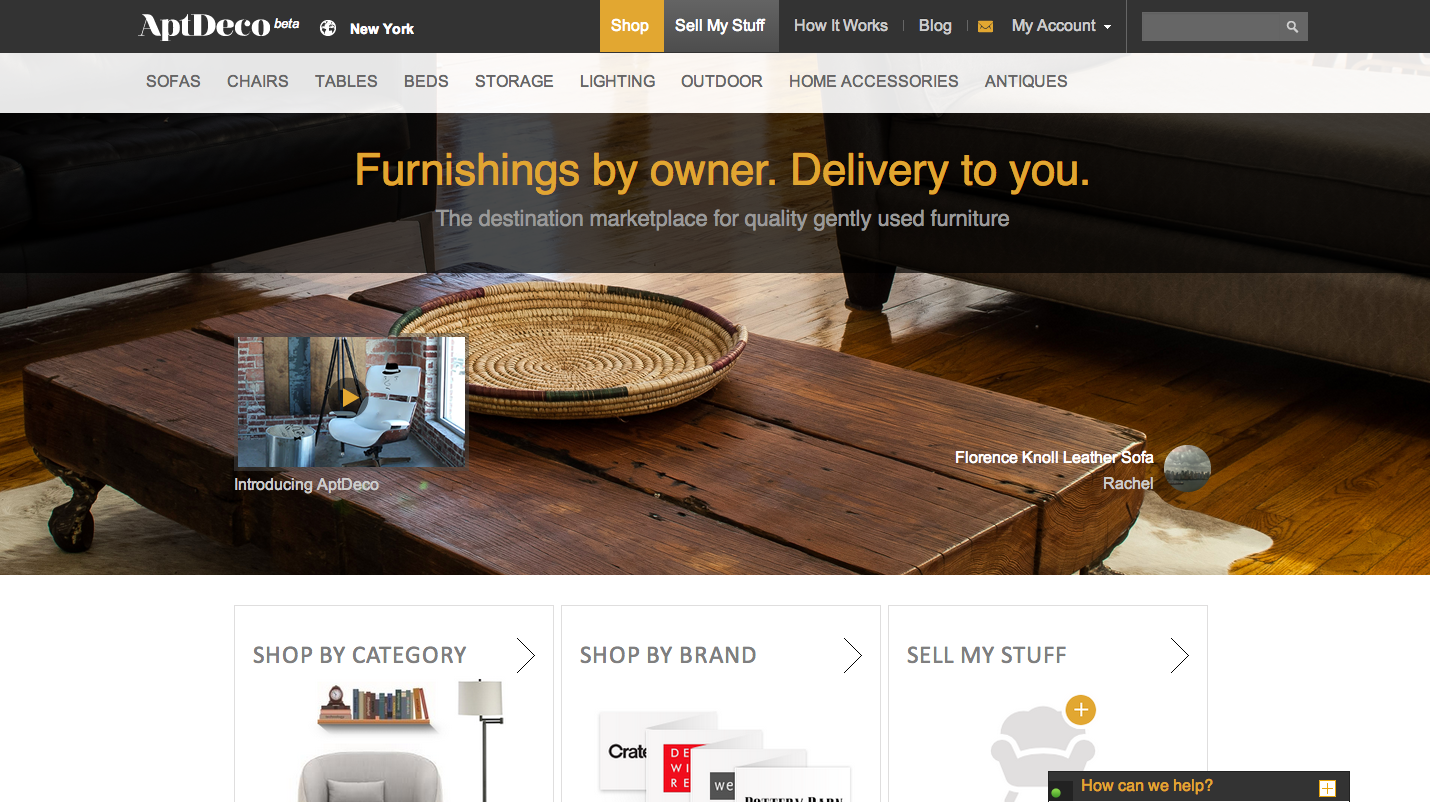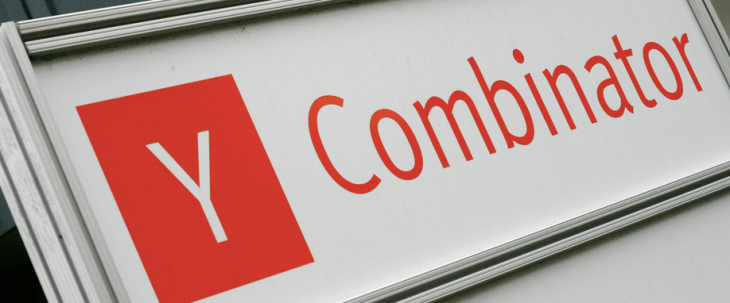Here are the 17 startups that presented in the third batch of companies and the four from the fourth batch that were on the record. Let’s go!
Ambition: Fantasy Football For Sales Teams
Ambition was formed by a bunch of sales guys who were looking for ways to optimize performance… But what better way to do that than by getting already-competitive people to compete with each other?
With Ambition, salespeople form teams and then compete against one another day-to-day. Those salespeople then typically sell 44 percent more than before the platform was introduced.
While today the system is optimized for sales teams, there’s a bigger opportunity in enterprise teams to make whole organizations more efficient by competing against one another.
For more on Ambition, check out this story.

Algolia: Faster Database Search
Algolia is a faster database search technology that claims to work up to 200 times faster than current technology. According to Algolia, many people querying databases are using technology poorly suited to the task. And given how many times per day people do in fact query a database, the market they are looking at is quite large.
The company has 80 paying customers, is seeing 50 percent revenue growth monthly. It turns out that TechCrunch’s own CrunchBase uses Algolia.
More on Algolia here.
Orankl: E-commerce Infrastructure
Most e-commerce sites don’t have the development teams to build advanced personalization and marketing features. Orankl wants to bring the tools Amazon has to all e-commerce vendors.
Once a site signs up, it’s crawled by Orankl, and traffic and purchase data is measured. Orankl can then send customers personalized email marketing messages with product recommendations based on their browsing habits. It also offers a super-simple product reviews plug-in that makes people more confident in their purchases. Orankl now has over 500 pilot stores, and says its average store client sees a 20% sales increase in just a few weeks.
The democratization of commerce will only work if small vendors have the tools like Orankl’s to compete with big businesses. Read more from TechCrunch about Orankl.
AptDeco: Used Furniture Sales Made Easy
This company is a used-furniture marketplace that actually works, connecting buyers and sellers and taking a cut of the sale. Before AptDeco, users were stuck with Craigslist, which was an inefficient way of getting furniture to exchange hands.
But AptDeco seeks to change the process with a better user experience and by providing logistics to move furniture. The service offers clear photos and descriptions of furniture, a one-step checkout process, and an inexpensive $65 pickup and delivery fee.

The used-furniture market is a $5 billion a year business. AptDeco has already reached a $1.3 million run rate with 33 percent week-over-week revenue growth since joining Y Combinator… And it did that in New York during a horrible winter. What will it do when it moves to other markets during good weather?
Here’s our earlier story on AptDeco.
Threadable:  Mailing Lists Evolved
Mailing Lists Evolved
Email is incredibly bad and working to stem its evil is a worthy task. Threadable wants to improve email by reforming mailing lists, with simpler get-me-out-of-here and member curation.
Since December, the company has seen nearly 500 percent growth in use each month. Expect the product to cost around two bucks per month per user when the service starts to charge. Email is bad, but if you must use it, you can at least make less noise with Threadable.
SketchDeck: Presentations Evolved 
Consulting firms like McKinsey employ 1,000 people or more dedicated to beautifying presentations for their teams. SketchDeck wants to build this same service for the general public.
A user creates a rough, ugly draft of a presentation in Microsoft Word or another non-presentation format and sends it to SketchDeck. Within 24 hours they get it back from SketchDeck as a beautiful presentation.
Anyone who rarely does presentations knows how agonizing getting it to look right can be, which is why SketchDeck is growing 40 percent a week, took in $5,000 in revenue last week, and is now profitable. It charges $5 per templated basic slide or $20 per custom slide, and businesses can pay for subscriptions ranging from $100/month to $1,400/month. If Sketchdeck succeeds, you might never have to fiddle with PowerPoint or Keynote again.
Read more from TechCrunch about SketchDeck.
Beacon: Crowdfunding For Journalism
This startup hopes to redefine the journalistic process by having readers pay for the projects and stories that they wish to have written. Beacon charges readers $5 a month to read content on the platform, and has seen 30x revenue growth since launch.
Why are people paying Beacon for content? In part because journalists launch their own products on the platform, and readers help decide which of those projects get funded.
For more on Beacon, go here.
![]()
TwoTap: Real-Life Purchases In Apps
Ads are bad and their returns are weak. This is known. TwoTap wants to change that by letting people buy products right in their application instead of showing ads. TwoTap then helps them checkout and ship without leaving the app.
Does it work? According to the company, partner app Kiip saw its revenue rise by 10X on the same number of impressions. Provided that is a repeatable win, and TwoTap can keep product diversity strong, this could change how apps monetize.
Next Caller: Advanced Caller ID
Caller ID is dated technology that has little place in the modern world as it is. According to Next Caller, companies spent $14.9 billion last year asking people to spell their names over the phone.
Next Caller, which launched at TechCrunch Disrupt, has profiles for 220 million people that can be accessed when they call in, cutting time and costs. Those profiles can include name, location, Twitter handle and follower count, income level, and more that help companies know how to route calls and maybe even whether they should give them premium support. For more on Next Caller, TechCrunch’s past coverage is required reading.
Eventjoy: Mobile-First Ticketing
Eventjoy provides a ticketing platform that is built for mobile users. Ticketing is a $4 billion market, and Eventjoy wants to provide a better way for customers to find and book events.
It appears to be working: People who attend Eventjoy events are also the company’s target market, and for each new event that appears on the platform, another two are posted.
Read more about Eventjoy here.
Kimono Labs: Web Scraping In One Click
Kimono turns websites into APIs. What that means is that you can point Kimono at a website, set paramaters, and scrape data from it. Think of it like building a small Google just for your needs aimed at one website.
So far 20,000 devs have signed up to use the service, a figure that is growing 15 percent per week. In its short life of around 10 weeks, Kimono claims to have helped triple the number of public APIs online. I’m honestly interested to see what people could do with Kimono, TechCrunch, and CrunchBase data.
Noora Health: Healthcare Training For Families
Noora Health trains families to take care of their kin after they return from the hospital. For families living, say, more than one hundred miles from professional medical care, basic healthcare knowledge could be a scarcity. Imagine having a child with a serious heart condition and stressing that you might do something wrong with their medication, care, or diet that could land them back in the hospital or worse? Noora Health gives families training that can be taken back to their homes, leading to healthier outpatients.
They don’t go back as nurses, but the training that individuals receive from Noora Health can reduce complications by 36 percent. The non-profit estimates that its training thus far has saved 124 lives. The company has trained 7,000 families so far.
The company is selling its product to hospitals in the U.S. and using those funds to pay for its work in other places. The company told gathered investors and press that it is building something that is not dependent on donor dollars. It’s a smart model that makes Noora feel more like a startup than a charity. For a deeper look at Noora Health, check out TechCrunch’s past coverage.

Camperoo: Airbnb For Camps
Camperoo provides a marketplace for children’s camps that helps parents find places for their kids to spend time. Since joining Y Combinator, the company has seen 225 percent growth rate.
In addition to helping camps find patrons, the company also gives them free software to help run their platforms. And parents are looking for ways to find more choices and book summer camps online.
You can read more on TechCrunch here.
Abacus: Real-Time Expenses
Admit it: You are bad at expenses. There, didn’t that feel nice? Abacus wants to end expense reports. It does so by having employees report their expenses from their smartphones, as they occur. Employees get paid back the next day.
Abacus syncs with accounting software, giving companies granular understanding of their daily costs. Abacus has 60 customers, including Pinterest. Transactions on its platform are growing at around 30 percent per week.
CodeNow: Teaching Teens To Code
CodeNow, another nonprofit in this batch, wants to help teach kids how to code, “with an emphasis on reaching girls, ethnic minorities, and other underrepresented groups.” CodeNow provides in-person training at tech companies on the weekends in San Francisco, New York, and Washington, D.C.
It has provided 19,000 hours of training so far. As we said in our previous coverage: CodeNow’s curriculum uses tools like Hackety Hack (for programming basics) and Lego MindStorms (for robotics) and involves a combination of weekend sessions and online coursework, as well as a boot camp (held over the longer school breaks or on consecutive weekends) with “intensive training” in Ruby.
Shoobs: Ticketing For Nightlife Events
Nowadays DJs are rock stars of nightlife events, and Shoobs is positioned to take advantage of that fact by offering ticketing solutions for nightclubs. Today that’s a $2 billion market, and it’s growing fast. Shoobs wants to be there to dominate the club market.

Minuum: An Android Keyboard
Minuum wants to be the keyboard layer for all devices. Launched on Android, it has racked up 100,000 downloads to date. Its technology converts to small screens as well, which is something that matters as screens become, well, smaller.
Of its initial set of users, 40 percent are paying customers. What Minuum is betting on is simply that the idea of smartwatches and other wearable computers are not pipe dreams, and that they will need soft keyboards. What Minuum has built looks cool.
See more Minuum coverage here.
Batch 4
Gobble: Solving The Problem Of Feeding Your Family
 This startup provides a new way for families to solve the issue of everyone wanting to eat something different. By working with restaurants, it delivers food that each member of a family will enjoy for a low fee per meal.
This startup provides a new way for families to solve the issue of everyone wanting to eat something different. By working with restaurants, it delivers food that each member of a family will enjoy for a low fee per meal.
The average customer spends about $70 a week on Gooble and uses the service for about a third of their dinners. The company’s revenue has quadrupled in the last four months and it’s already profitable.
You can read our previous coverage here.
HoverChat: SMS Replacement
HoverChat is a new way to message based on the premise that messaging should be pervasive, and not be constrained while inside other applications. Teens, the company pointed out, love to multi-task.
Following a featured slot in Google’s Play Store, HoverChat users are now exchanging 2.2 million messages per day. In the company’s view, messaging is the killer experience for mobile. It will be interesting to watch its growth curve, given that scaled messaging apps have tremendous value. Formerly known as Ninja SMS, HoverChat also sells a version of itself for four bucks.
TerrAvion: Transforming Agriculture With Photography
TerrAvion wants to make farms more efficient by providing them with actionable photos and data to get the most out of their land. Every week, farmers get a picture of their fields. The company has grown from 900,000 acres of farmland last year to 50 million acres today. It plans to continue scaling up over time.
You can read more about TerrAvion here.

Move Loot: A Better Way To Buy Used Furniture
Move Loot takes furniture from those who want to get rid of it, inventories it, snaps pictures of it, and then sells it to other locals, handling delivery in the process. People hand their stuff over to Move Loot for no upfront payment. The two then split the revenue generated from its sale.
Why are people willing to go along with being paid late — and half the sale? Because, according to the company, they are that intent about getting rid of their furniture that they don’t want. Great news for Move Loot, and also for consumers who get a far superior buying experience.
According to the company, a “full service marketplace” is the only option worth considering. A quick scan of their website shows inventory of an eclectic, interesting nature.
Read more about Move Loot here.
IMAGE BY FLICKR USER Paul Miller UNDER CC BY 2.0 LICENSE (IMAGE HAS BEEN CROPPED)
